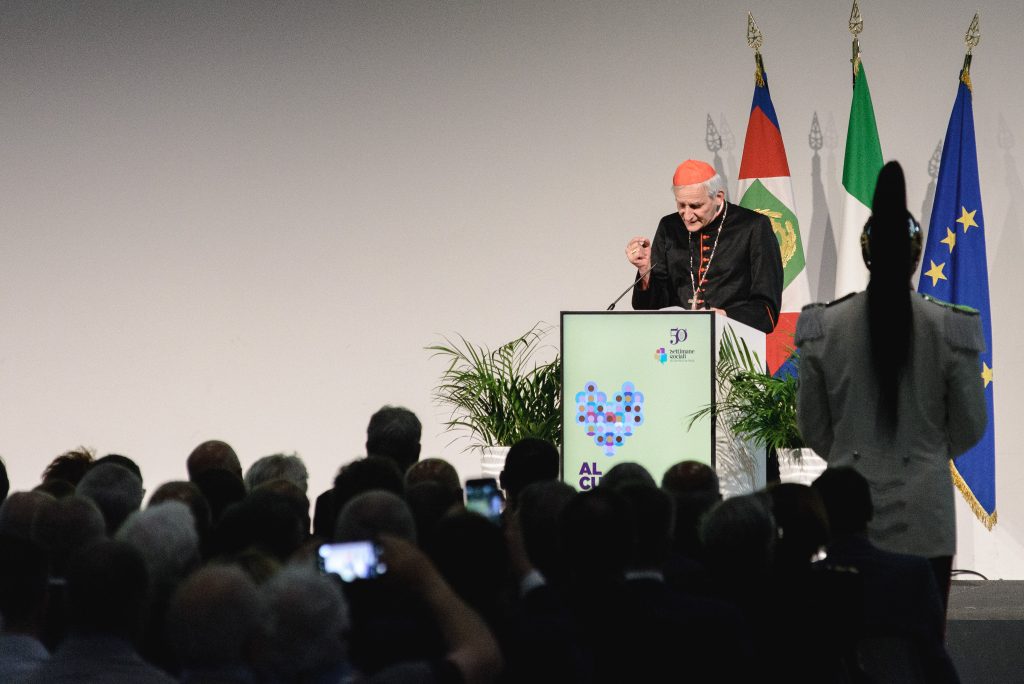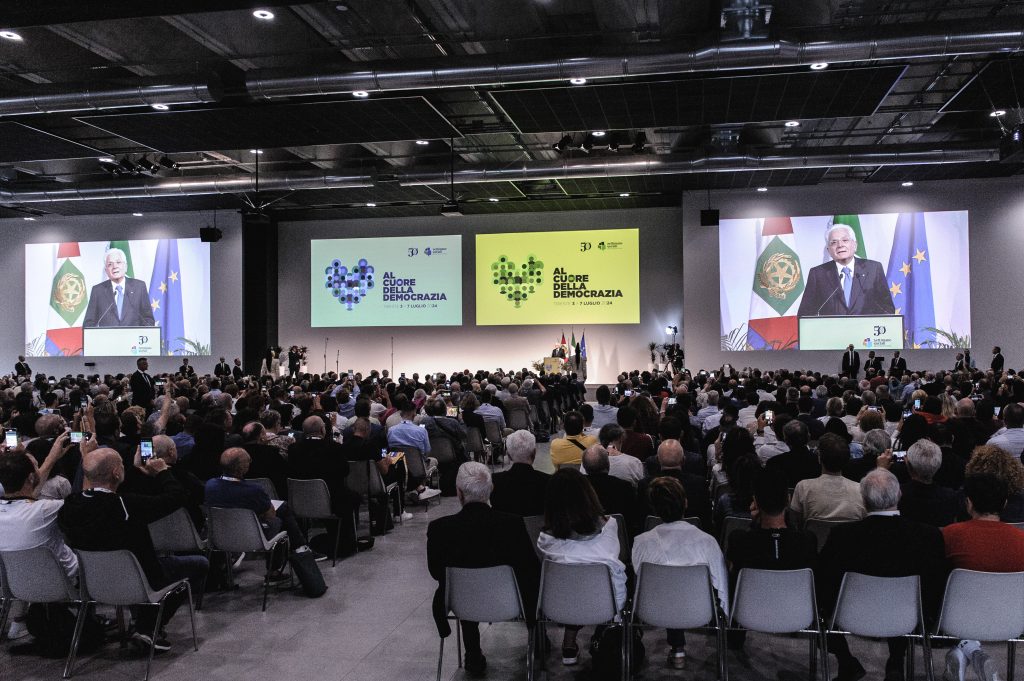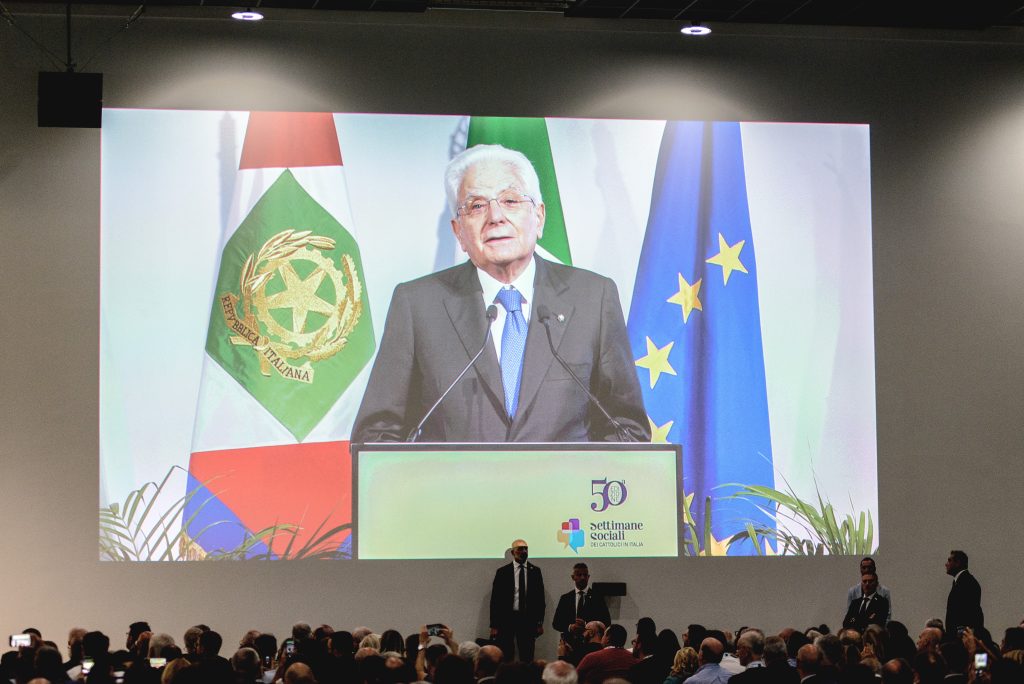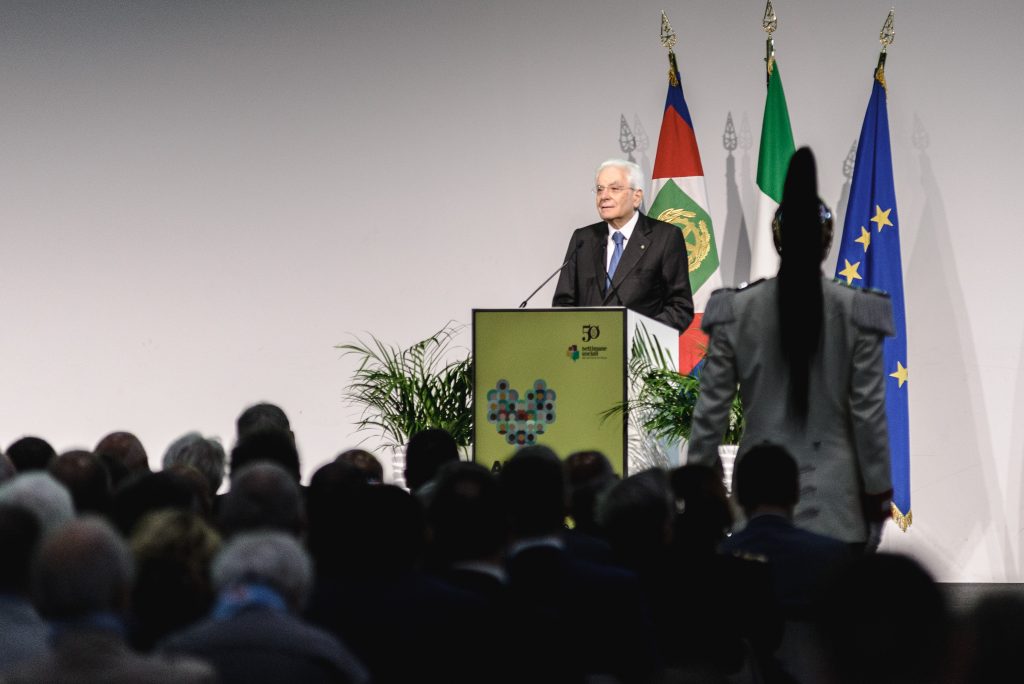by MK
photographs Erin McKinney
The 50th Social Week of Catholics in Italy commenced Wednesday at Trieste’s Old Port Convention Center, moving indoors from its original venue in Piazza dell’Unità d’Italia due to forecasted inclement weather. The opening ceremony featured compelling speeches from Cardinal Matteo Zuppi and President Sergio Mattarella, who both emphasized themes of solidarity, democracy, and social justice.

Cardinal Zuppi, the president of the Italian Episcopal Conference, began his speech by thanking President Mattarella, prompting a spontaneous and prolonged applause from the audience. In his address, Zuppi underscored the need for empathy and unity, particularly in the context of the migrant crisis. “We do not want borders to be walls or, worse, trenches, but hinges and bridges. For those who have become migrants and ask to be considered for what they are: people!” he declared, receiving another round of applause from the attendees, which included civil and military authorities and Generali CEO Philippe Donnet.

Zuppi expressed deep concern over the increasing number of Italians living in absolute poverty, which now exceeds 5.5 million. He also reflected on Trieste’s complex identity as a borderland, a place of dialogue and reconciliation, yet marked by historical wounds that have yet to fully heal. In a somber note, he honored the memory of Satnam Singh, an Indian laborer who died in Latina after being abandoned on the street by his employer.
President Mattarella followed with a speech that traced the historical roots of Italy’s democratic values. Citing former President Giorgio Napolitano’s address at the inaugural Democracy Biennial in 2009, Mattarella highlighted Italy’s transition from fascist oppression to a republic grounded in constitutional rights.

Mattarella emphasized the dangers of unchecked majority rule, drawing on Egidio Tosato’s critique of Rousseau’s notion of the general will. “We all know by now that the presumed general will is in reality nothing more than the will of a majority, and that the will of a majority, which considers itself representative of the will of the entire people, can be, as it has often proven to be, more unjust and more oppressive than the will of a prince,” he asserted.
Reflecting on the seventy-eight years since Italy’s 1946 referendum, Mattarella noted the interplay of liberal and democratic freedoms in shaping the nation’s political landscape. He underscored the importance of fundamental individual rights, which should remain inviolate despite the shifting tides of majority rule.

The president also touched on the evolution of social expectations and the role of collective identities in a transforming society, a subject deeply embedded in the Catholic movement’s history. Referencing Giuseppe Dossetti, Mattarella spoke about “substantial democracy,” advocating for the people’s comprehensive access to political, economic, and social power.
Concluding his address, Mattarella distinguished between the common good and majority interest, underscoring the Catholic commitment to democracy. He acknowledged the historical complexity of Catholicism’s relationship with the state, yet emphasized its enduring dedication to democratic principles.




























